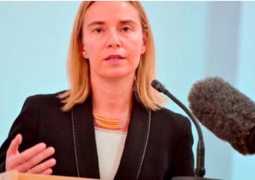
The recent depreciation of the Gambian dalasi against international trade currencies, such as the dollar, the euro, the pound and the CFA, attracted a swift reaction from The Gambia Government through the Central Bank of The Gambia (CBG).
The reaction of the CBG led to the suspension of three major money transfer operators - Ria, Money Express and Wari - from operating in the country’s foreign exchange market.
The Central Bank also had the belief that speculative activity by market operators in the domestic foreign exchange market contributed to exerting more pressures on exchange rates, which accelerated the depreciation of the Dalasis.
For this and other reasons the CBG through its Monetary Policy Committee recently hiked the Rediscount Rate by two percentage points, increased the Required Reserve Ratio and reduced limits on Net Open Position (NOP) of banks.
Furthermore a government statement also established an exchange rate mechanism for all foreign currencies against the Dalasi, and forbids all dealers of foreign currencies (forex) on the streets from engaging in the activity of exchanging currencies through purchase and sale, except licenced foreign exchange bureaus.
A fixed set of rates for foreign currencies against the dalasi was also underpinned by government. For instance it fixed the rate of the US dollar versus the Gambian dalasis at D30/33 for US$1 from D40 to US$1 the rate had gone to about six weeks ago.
Although these measures were intended to bring respite to the rate of exchange, change the situation of hoarding forex, encourage investment in Dalasi assets and dampen demand for foreign exchange in the market, the situation, to some extent, led to some other pattern in the forex market; which is, whilst dealers of forex are rushing to buy foreign currencies from people at the government fixed rate on daily basis, they are at the same time unwilling or refusing to sell to people at the fixed selling rate by the same source they usually quote.
So the situation, which was intended to be improved, has rather taken another dimension, more to the advantage of the dealers, who now buy at the reduced rates but sell not in the same vein, creating a big vacuum in the chain of purchase and sale of foreign currencies in the country, as well as increasing demand for forex.
This situation, which sounds like a coerce mechanism from the market players, has again prompted another reaction from the government to release another press statement from the Office of the President that it has lifted restrictions on the trading of the US Dollar, saying trading in the foreign exchange market is to be determined by market forces.
The July 14 press release states: “Following a review of recent developments in the domestic foreign exchange market, the Office of the President informs the general public that restrictions on the trading of the Dollar have been lifted.
“The range for the dollar exchange rate that was prescribed is hereby repealed. Trading in the foreign exchange market is to be determined by market forces as par The Gambia’s commitment to a flexible exchange rate regime.
The Office of The President urges players in the foreign exchange and other markets to play by the rules and advises traders to eschew the practice of hoarding and undue speculation.”
Although the government has warned that it “will ensure that players in the market conform to the rules and regulations that govern free markets”, it is very essential to strike a real balance between encouraging a free market economy and guarding against what economists call market failure.
Market failure, according to Graham Bannock and Evan Davis, two reputable economists, is a situation arising from the self-interested behaviour of individuals in the economy – unimpeded by government regulation or other action - in which economic efficiency does not prevail.
Market failures provide a ubiquitous argument for intervention of some form or other, Bannock and Davis say, but they have two main sources.
First, Market failures derive from the fact that many transactions which would need to occur for the sake of economic efficiency simply do not occur.
“This may be on account of frictions in the system, such as the cost of transacting (transactions costs) or the costs of setting a price at the efficient level. Or there may be a deficiency of information to the parties involved, or perhaps asymmetric information between participants in the market (with the corresponding problems of adverse selection, moral hazard and agency costs). Or there may be strategic behaviour by the individuals involved, who fail to engage in a trade, in the hope that they might extract a better deal from their adversary if they ‘play it right’.”
The second source, they say, have to do sometimes with collective interests that are unable to be served by self-interested, individual behaviour.
They also say: “There can be industries subject to increasing returns to scale, in which monopoly is inevitable, which carries large efficiency costs unless there is a collective effort to regulate.”
BIZFINANCE LEXICON
Funds broker: An intermediary for the arrangement of short-term lending between banks
Free reserves: Those reserves of a bank or an insurance company that exceed the level prescribed by the monetary or relevant supervisory authorities.
401K: A savings scheme under which employees may have up to 10 per cent of their salary deducted before taxation for investment in securities.
General Agreement on Tariffs and Trade (GATT): A convention entered into by most nations of the non-communist world in 1947 for the liberalization of world trade and for the establishment of an international trade organization.
IBNR Claims reserves: A fund (usually the claims outstanding reserve) set aside by an insurance company to meet claims that have arisen but not yet presented to the company, i.e. incurred but not reported.
Knock-for-knock: A practice whereby motor insurers agree, in the event of an accident, each to repair their own insured vehicles, so saving administrative and possibly legal expense. The uninsured’s no-claim bonus is normally not affected.
Mezzanine: A term signifying an intermediate stage in a financing operation. It usually refers to an unsecured debt and equity in ranking for payment in the event of default.
Parallel import: One of a flow of imports from one market into another, outside the formal trade arrangements made by the company responsible for the product in question.
Price leadership: A pattern of behaviour in an industry by which one leading firm sets its prices and others follow in its wake with theirs.
Renunciation: The assigning by a shareholder of the rights granted in a rights issue to another person. A shareholder can sell the rights to someone else by signing renunciation form.
Source: The Penguin International Dictionary of Business and Finance


